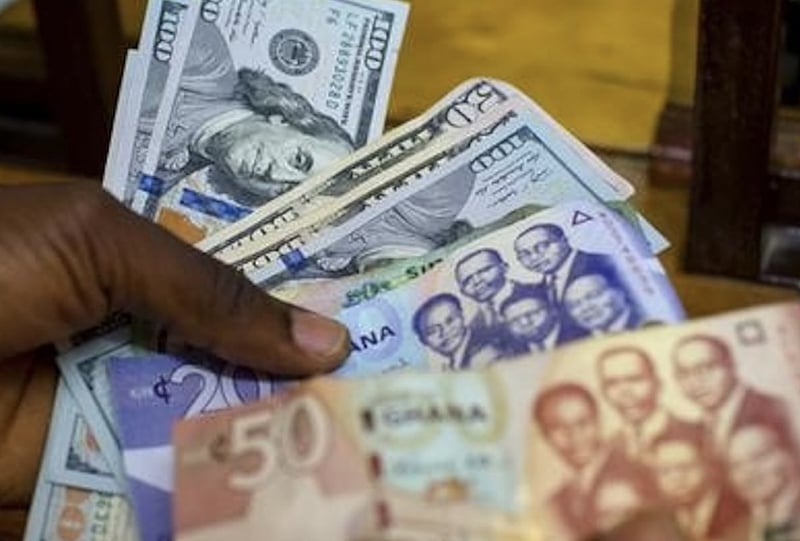The Ghanaian cedi experienced notable volatility against major international currencies on August 1, 2025, with varying exchange rates across different market segments. A key observation is the disparity between the interbank market rates set by the Bank of Ghana and the rates offered by forex bureaus. This difference highlights the influence of market forces and the premium charged by forex bureaus for their services. Cedirates.com, a reputable platform tracking currency exchange rates in Ghana, reported an average buying rate of GHS10.51 and a selling rate of GHS11.03 against the US dollar. Forex bureaus, however, quoted significantly higher rates, selling the dollar at GHS12.00 and buying it at GHS11.65. This premium likely reflects the operational costs and profit margins of these bureaus, as well as the dynamics of supply and demand at the retail level. The interbank market, operated by the Bank of Ghana, offered a more favorable exchange rate for the dollar, with buying and selling rates of GHS10.49 and GHS10.51, respectively.
The British pound followed a similar trend, with forex bureaus quoting higher rates compared to the Bank of Ghana’s interbank rate. The average buying rate for the pound at forex bureaus was GHS13.82, while the selling rate reached GHS14.66. The Bank of Ghana, in contrast, set the interbank rate at GHS13.90 for the pound. This difference again underscores the premium charged by forex bureaus, which caters to smaller transactions and individual customers. The euro also exhibited similar dynamics, with forex bureaus offering a buying rate of GHS11.97 and a selling rate of GHS12.69. The Bank of Ghana’s interbank rate for the euro stood at GHS12.02. This consistent difference across multiple currencies reinforces the role of forex bureaus as retail providers, incorporating service charges and market fluctuations into their rates.
Money transfer operators, such as LemFi and Afriex, presented a competitive landscape for remittances from the US and UK to Ghana. These platforms leverage technology to offer streamlined and often more cost-effective transfer solutions. For US dollar remittances, LemFi and Afriex offered attractive rates of GHS10.45 and GHS10.44, respectively. These rates are notably closer to the interbank market rate than those offered by forex bureaus, highlighting the competitive pressure exerted by these digital platforms. For British pound remittances, LemFi and Afriex provided rates of GHS13.90 and GHS13.89, respectively, again demonstrating their competitive pricing strategy compared to traditional forex bureaus.
The euro remittance market also saw competitive rates from LemFi and Afriex. Afriex offered a rate of GHS12.01 per euro, while LemFi offered a slightly lower rate of GHS12.00. These rates remained competitive compared to forex bureau offerings, further underscoring the growing influence of digital remittance platforms in the currency exchange market. The availability of multiple money transfer options provides consumers with choices and encourages competition, which can lead to more favorable exchange rates for remittances.
For digital subscriptions to services like Netflix, Spotify, and Apple Music, the exchange rate for both Visa and Mastercard transactions was GHS11.29. This rate falls within the range observed across different market segments, likely reflecting the processing fees and currency conversion charges associated with international transactions. It is important for consumers to be aware of these different rates and choose the most suitable option based on their specific needs and transaction type. Whether using a forex bureau, a money transfer operator, or a credit card for online payments, understanding the prevailing exchange rates can help consumers make informed decisions and potentially save money.
The dynamic nature of the currency exchange market requires continuous monitoring and analysis. Factors such as inflation, interest rates, government policies, and global economic conditions can all influence exchange rates. Platforms like Cedirates.com play a crucial role in providing transparency and facilitating informed decision-making for individuals and businesses alike. The competition between traditional forex bureaus and emerging digital remittance platforms adds another layer of complexity to the market, creating opportunities for consumers to seek the most favorable exchange rates. As the financial landscape continues to evolve, staying informed about the latest currency exchange trends and available options is essential for optimizing financial transactions and navigating the complexities of international currency exchange.














